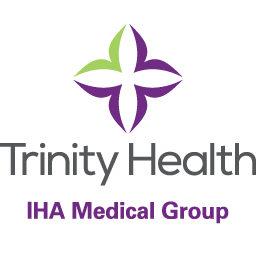What I liked
This research internship was the perfect introduction to the Arab-American research process. This type of work is more unique than any other research that I've been a part of because of the innovative approaches to recruitment, community engagement, data collection, and information sharing.
I quickly learned about the three main challenges that one may face when conducting Arab-American research: (1) lack of data, (2) lack of funding, and (3) lack of trust.
First, the U.S. Census classifies all Arabs as "white," which is an act of disrespect and erasure for the majority of Arab-Americans who do not identify as such. Additionally, the clumping of Arab-Americans, a small minority group in the U.S., with white Americans, the majority group in the U.S., causes their data to be lost and rendered inaccessible to researchers. Therefore, due to a lack of nationwide data on Arab-Americans, the staff at AHI and I had to get creative with locating Arab-American organizations and communities in New York City to invite them to our events and studies. For example, we searched through historically Arab neighborhoods to locate religious institutions, social service organizations, and community centers that may serve a significant Arab population.
Second, since Arab-Americans do not have their own category on the U.S. Census, many grant programs and large funding organizations do not consider Arabs as a priority/ special population and some do not even think that Arabs are a substantial enough minority. This situation is difficult to navigate through because limited funding means that the research will be very constrained. One solution has been expanding our research teams to include other ethnic groups, especially various immigrant communities in NYC, to collaborate through acquiring greater funding, working together on projects, and considering all of our shared experiences.
Third, chronic anti-Arab sentiment and Islamophobia in the U.S., both of which have been on the rise since 9/11 and the 2016 presidential race, have caused Arab-Americans to face interpersonal and instituional discrimination. Consequently, there is immense fear and mistrust within Arab-American communities. There is a wide gap between researchers and this population because participants often worry that their data is being used against them or that researchers are being used as a means of surveillance over their families and communities. Through my work with AHI, I have learned that this type of research is most successful when Arab researchers are working with Arab participants. As an Arab woman, I was able to speak to participants in local dialects, make them feel comfortable by thoroughly explain the research and how privacy and confidentiality are promoted, and allow them to bring up any questions or concern that they may have at any time. I believe that this approach allowed me, a community health researcher, to be a "familiar face" to Arab participants; the research appeared to be a group initiative to improve the health of local Arab-American communities, rather than some investigation ridden with great power imbalance.
I also developed a vocabulary bank of medical terminology in Arabic. I already speak Arabic through the Syrian dialect, but I didn't know many medical words and phrases prior to this internship since I didn't use them at home to speak with my family and I also didn't learn them in college. I plan on becoming a physician who works with predominantly Arab populations, so developing this skillset was extremely valuable and has given me the confidence to continue conducting research in Arabic.
Overall, this internship helped me expand my network with community health researchers across the U.S., learn about the challenges (and respective solutions) to the Arab-American research process, and gain inspiration for my own research. I definitely plan on returning to AHI in the future and advancing my research in this field. As I wrap up this internship and transition into the academic year, I am launching my own Arab-American study titled "Essential Work, Forgotten Perspectives: Arab-Americans in New York’s Food System," which is fully funded by the Tisch College at Tufts University. I will be accessing the socioeconomic impacts of COVID-19 on Arab-American food workers in NYC. The final product of this project will be a website that showcases my study's findings and includes a growing directory of Arab food businesses in New York City.










